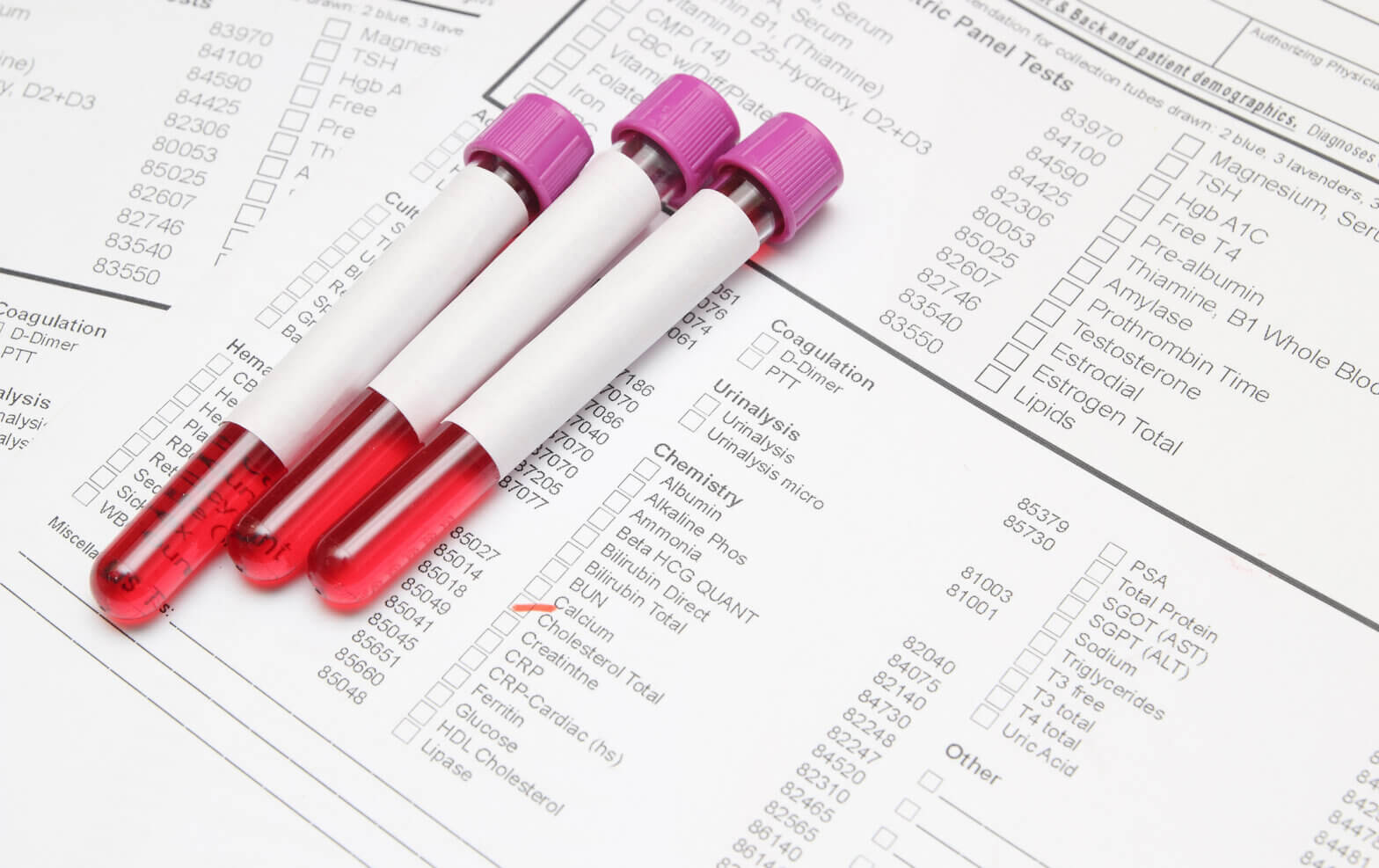Last updated: February 16, 2024
5 mins read
Key Takeaways:
- Yearly physicals include important tests like CBC and Chemistry panel but omit many crucial biomarkers.
- Comprehensive testing can provide a more complete overview of an individual’s health.
- SiPhox Health targets rapidly changing markers that are ideal for frequent monitoring, providing timely insights into your health.
During an annual physical, standard blood tests are used to assess aspects of health such as the balance of essential minerals and electrolytes, liver and kidney function, blood cell status, and markers like cholesterol and blood sugar levels that indicate risk factors for heart disease and diabetes. Though not a substitute for your annual bloodwork, SiPhox Health serves as an essential adjunct, providing deeper insights into your health. Perfect for anyone navigating lifestyle changes, new medications, or monitoring chronic conditions, tracking your health has never been easier or more insightful.
SiPhox Health vs Standard Yearly Blood Test
What exactly does the standard yearly blood test include?
- Complete blood count (CBC) — Measures different cells and parts of your blood, which can help detect infections, anemia, blood clots, immune system disorders, and blood cancers.
- Chemistry panel (complete metabolic panel) — Provides information about your bones, muscles, and other organs.
- Calcium [1] is essential for nerve, muscle, and heart function.
- Sodium, [2] potassium, [3] carbon dioxide, [4] and chloride [5] are electrolytes that help control the amount of fluids and the balance of acids and bases in your body.
- Albumin [6] is a protein that carries hormones, vitamins, and enzymes throughout the body.
- Total protein
- ALP (alkaline phosphatase), [7] ALT (alanine transaminase), [8] and AST (aspartate aminotransferase) [9] are different enzymes made by the liver and are used to detect liver dysfunction.
- Bilirubin [10] is a waste product made by the liver. High levels are indicative of liver dysfunction.
- BUN (blood urea nitrogen) [11] and creatinine [12] are waste products removed from your blood by your kidneys. If the kidneys are not functioning properly, BUN and creatinine levels will be high.
- Lipid panel (cholesterol test) — Measures cholesterol-carrying proteins which can help determine cardiovascular risk.
- Lipids include cholesterol, triglycerides, high-density lipoprotein (HDL), and low-density lipoprotein (LDL).
- Blood sugar screen — Helps in the process of diagnosing diabetes.
- HbA1c and fasting glucose
- Thyroid health
- TSH, Free T3, Free T4
- Micronutrients
- B12, Vitamin D, minerals
Though there is overlap with the standard yearly blood test, there are a few essential markers that SiPhox Health does not measure.
- Which essential markers SiPhox Health does not measure:
- Kidney function tests (BUN and Creatinine)
- Liver function tests (ALT, AST, ASP)
- CBC
- Some Micronutrients
What biomarkers does SiPhox Health measure?
SiPhox Health focuses on four key branches of health:
- Cardiovascular Health impacts lifespan and day-to-day vitality. Monitoring your heart and vasculature helps to determine risk factors for heart disease and stroke. SiPhox Health goes beyond traditional cholesterol testing with ApoA1 and ApoB measurements, offering a more detailed assessment of lipid-related cardiovascular risk.
- Metabolic Fitness shows how your body processes energy, prevents chronic diseases, manages weight, and boosts energy levels. By measuring markers like HbA1c, Insulin, and thyroid function, SiPhox Health provides a broader understanding of metabolic function and associated risks.
- Inflammation is your body’s silent alarm system, often reflecting underlying health issues before they become serious. Beyond standard CRP, SiPhox Health tests for hs-CRP, Ferritin, and Homocysteine, providing a more detailed view of inflammation, a key factor in chronic diseases.
- Hormonal and Nutritional Balance affect various bodily functions including metabolism, mood, growth, immune function, disease risk, and overall wellness. Our panel extends to hormones like Cortisol, DHEA-S, FSH, Estradiol, and Testosterone, vital for understanding physiological stress responses, and overall hormonal balance.
SiPhox Health vs Standard Yearly Blood Test
To learn more about these biomarkers including why they are important, whether they are included in the standard yearly blood test, how long they take to change with lifestyle modification, and much more, visit: https://home.siphoxhealth.com/what-we-measure.
The Scientific Benefits of SiPhox Health include:
- Enhanced Frequency: Our regular testing can detect health marker changes more swiftly than annual screenings.
- Convenience and Comfort: The ease of SiPhox Health’s at-home testing eliminates the need for scheduling clinic visits and enduring long waits.
- Health Data: SiPhox Health reports provide insights tailored to individual health profiles, enabling more informed healthcare decisions.
- Early Detection and Prevention: The comprehensive nature of our testing facilitates the early detection of potential health issues, allowing for timely intervention.
- Data-Driven Lifestyle Adjustments: With a more detailed health profile, individuals can adjust their lifestyle choices more precisely to match their health needs.
What’s included with a SiPhox Health test panel:
- At-Home Convenience: Our kit comes to your door. Specially designed for easy, low-pain blood collection through a simple fingerprick method.
- Flexible Pricing: Access our services at $345 for a one-time test, or embrace regular health monitoring with subscriptions at just $85 per test.
- Comprehensive Biomarker Analysis: Our base panel examines 17 essential biomarkers, plus delves deeper with our Hormone+ and Thyroid+ add-on panels for a full health spectrum.
- Integrated Health Tracking: We support sleep and activity tracking across more than 200 wearable devices, ensuring you get a holistic view of your health, with results delivered swiftly within 2-5 business days.
Disclaimer: If you have any medical questions or concerns, please talk to your healthcare provider. The articles on the SiPhox Health Hub are underpinned by peer-reviewed research and information drawn from medical societies and governmental agencies. However, they are not a substitute for professional medical advice, diagnosis or treatment.
References




